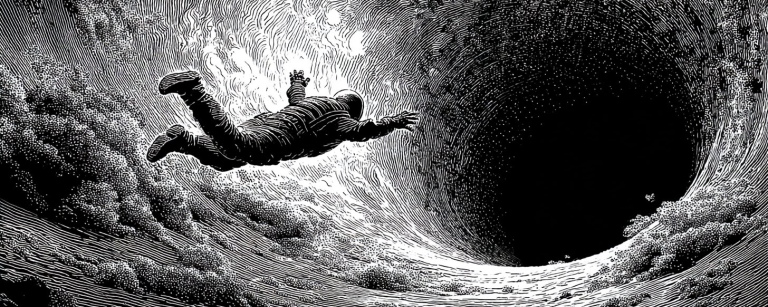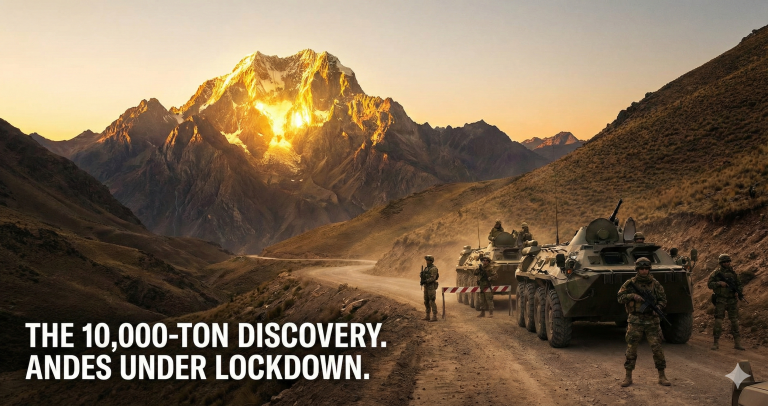Introduction: The Call of Simplicity
In a world addicted to noise—notifications, deadlines, streaming, and social scrolling—monks live in a parallel universe. Silence is their language. Discipline, their diet. Purpose, their path. That contrast fascinated me. So I decided to step away from my modern life and step into theirs. For one week, I lived like a monk.
No phone.
No talking (except when essential).
No caffeine, sugar, or meat.
No social media, emails, or YouTube rabbit holes.
Only meditation, mindful eating, reading, reflection, and chores.
This isn’t some influencer stunt. I did this because I was tired. Not tired like sleepy—tired like spiritually drained, chronically distracted, and emotionally numb.
I needed a reset. Monks have been doing this for centuries. So I thought, why not try living like one, just for a week?
Day 1: Detox and Discomfort
I began the day at 4:30 AM with a harsh alarm and zero motivation.
The rules were simple but brutal:
- Wake before sunrise
- Meditate 2 hours per day (broken into chunks)
- Eat only twice a day, both before 12 PM
- Practice noble silence (no talking unless absolutely necessary)
- Read only spiritual or philosophical texts
- Daily chores without complaining or multitasking
- No internet, phone, music, or entertainment
By 10 AM, I was already missing coffee like a long-lost lover.
Meditation was frustrating. My mind raced like a browser with 27 tabs open. I kept checking the time, even though I had no phone—just a cheap analog clock on the wall. Ten minutes felt like eternity.
By evening, the silence was deafening. I felt alone. Not lonely, just… raw.
Day 2: Hunger and Headspace
The second morning, hunger woke me before my alarm. The two-meal rule (breakfast and lunch only) was harder than I expected. I found myself staring at the clock until 6 AM, just waiting to eat.
But something shifted during my morning meditation. I sat longer, fidgeted less. I actually noticed my breath.
Without Instagram reels or Spotify, I heard birdsong and distant traffic. It was the first time in years I paid attention to ambient life. The ordinary started to feel extraordinary.
I swept the floor. Slowly. Mindfully. Not listening to a podcast or rushing through it. It felt almost… holy.
Day 3: The Silence Hits Hard
By the third day, silence wasn’t just an absence of sound. It was a presence. A mirror.
Without distractions, thoughts rise up like bubbles in still water. Some beautiful. Some disturbing.
I remembered old arguments. Regretted unkind words. Grieved losses I hadn’t processed. But I also remembered my childhood laugh, old friends, my grandmother’s hands.
Turns out, the mind is a noisy attic when you stop drowning it in noise.
I wrote in a journal. Not to post, not to publish. Just to explore what was inside.
Day 4: Monotony as a Mirror
Routines were now familiar: rise, meditate, eat, clean, read, repeat.
But here’s what surprised me: repetition was comforting.
In modern life, we crave novelty. But monks find depth in repetition. Each meditation session became slightly deeper. Each meal more flavorful. Each moment more vivid.
I stopped craving social media. My mind no longer itched for constant input. Instead, I started noticing my output: my energy, my mood, my attention.
Without dopamine hits from TikTok or caffeine, I was finally feeling… regulated.
Day 5: Inner Storm
Not every day was peaceful.
On Day 5, anger surfaced. For no reason. I was irritated by a crooked chair, a fly buzzing in the kitchen, my own breathing.
But monks aren’t about repressing emotions. They observe them.
I tried that. I didn’t fight the irritation. I just noticed it.
And then something strange happened. It passed. Like a thunderstorm rolling through and clearing the air.
I started to see emotions like weather—temporary, not personal.
Day 6: Stillness Becomes Strength
By Day 6, I felt… different.
I wasn’t “enlightened” or anything. But I felt stronger. Not in muscle, but in presence.
I was more patient. I responded, rather than reacted. I didn’t crave junk food or noise. I wasn’t bored.
I was still.
Stillness, I learned, isn’t emptiness. It’s capacity. Like a calm lake can hold more reflection than a choppy sea.
My mind felt like that lake.
Day 7: Reentry Fears
As the final day approached, I feared going back.
Would Instagram feel gross? Would I start multitasking again? Would I forget this peace?
The world I left behind now seemed loud. Full of anxiety disguised as productivity. Entertainment as escape. Food as filler.
But monks don’t retreat forever. Even monastic life is about returning to the world, wiser.
So I planned my reentry. No all-day scrolling. No inbox binge. I wanted to integrate—not abandon—what I learned.
What I Gained: Lessons from Monastic Living
1. Silence is medicine.
Not just for introverts. Silence is the womb of clarity. It reveals what you ignore when you’re too busy being “busy.”
2. Less is not lack.
Living with less made me feel more complete. I wasn’t empty. I was full of presence.
3. Discipline breeds freedom.
Ironically, strict routine gave me mental spaciousness. Knowing what to do next removed decision fatigue.
4. You are not your thoughts.
Meditation taught me that thoughts are like clouds. You are the sky. Always there. Always still.
5. Boredom is a gateway.
Underneath boredom lies wonder—if you’re willing to sit through the fidgeting.
6. The world is beautiful when you notice it.
A spoonful of rice. Sunlight on the floor. A deep breath. Ordinary things became sacred.
Would I Recommend It?
Yes—but with caution.
Don’t expect bliss. Expect discomfort. Expect resistance. Expect to confront yourself.
But if you’re burned out, anxious, emotionally numb, or addicted to your screen, a week of monk-mode could save you from collapse.
Start small:
- Try a silent morning.
- Meditate 10 minutes a day.
- Do one task without multitasking.
- Eat one meal mindfully.
- Turn your phone off for a few hours.
You don’t need a robe or a mountain. Stillness lives in you—if you make space for it.
Conclusion: The Monk in the Mirror
I went into this experiment expecting serenity. I got it—but not in the way I imagined.
Monk life didn’t erase my flaws. It revealed them. Then, slowly, gently, gave me the tools to hold them with compassion.
I realized I don’t need to become a monk.
I just need to remember that, sometimes, the most radical act is to sit still, do less, and listen—to the breath, to the silence, and ultimately, to myself.
So, if you ever ask yourself, “What if I lived like a monk for a week?”, just know this: it’s not easy. But it’s worth it.
I tried it, so you don’t have to—but maybe, just maybe, you should.
“The quieter you become, the more you are able to hear.” – Rumi



